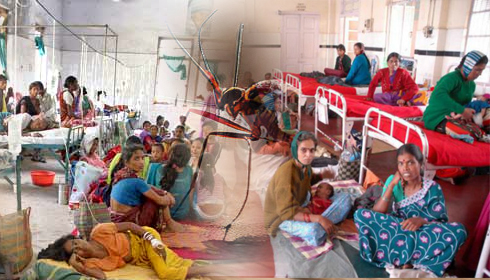
Arunachal Pradesh Achieves Major Milestone in Malaria Eradication
Making a significant progress in stopping the spread of malaria, Arunachal Pradesh has officially moved up to Category 1 with an Annual Parasite Incidence (API) of less than one case per 1,000 people. Released by the World Health Organisation (WHO), the World Malaria Report 2024 acknowledged this landmark, further bolstering India's fight against malaria.
The report also noted Andaman & Nicobar Islands, Madhya Pradesh, and Dadra and Nagar Haveli for attaining comparable success in malaria control.
Celebrating this success, Arunachal Pradesh Chief Minister Pema Khandu posted on his official X (previously Twitter) account stressing India's rapid improvement in malaria eradication.
"India is swiftly heading towards a time free of malaria. Thanks to the combined efforts of all stakeholders, malaria cases have dropped to two million, and deaths have dropped to just 83 by 2023, so highlighting our shared will to better public health for our residents." CM Khandu said.
He underlined even more Arunachal Pradesh's extraordinary success in fighting malaria in line with other top areas, therefore supporting the state's will to eradicate the illness.
"Along with the Andaman & Nicobar Islands, Madhya Pradesh, and Dadra and Nagar Haveli, Arunachal Pradesh has moved to Category 1 in 2023, reporting an Annual Parasite Incidence (API) of less than one case per 1,000 population," he said.
CM Khandu attributed the government's targeted actions and visionary leadership under Prime Minister Narendra Modi to India's public health improvement.
"Given the efficacy of targeted interventions under the visionary guidance of Hon’ble Prime Minister Shri Narendra Modi ji, our robust public health infrastructure will help India achieve the malaria-free status by 2030," he said.
The ambitious Zero Indigenous Malaria Cases by 2027 target of Arunachal Pradesh shows even more its dedication to eradicating malaria. By means of ongoing health campaigns, vector control programs, and community involvement, CM Khandu reiterated the state's unflinching commitment to reach this goal.
Although the development is impressive, experts stress the importance of constant measures to stop revival. Still a major public health issue in regions of India, malaria is a mosquito-borne disease. Reaching zero indigenous cases by 2027 calls for ongoing expenditures in early diagnosis, surveillance, and successful treatment plans.
India's National Strategic Plan for Malaria Elimination (2017–2030) lays out a methodical approach to the total eradication of malaria by 2030. With states like Arunachal Pradesh setting the standard, the goal of a malaria-free India seems even more realistic.
In India's fight against malaria, Arunachal Pradesh's ascension to WHO's Category 1 marks a major success. Success emphasises how well public health infrastructure, focused treatments, and good leadership work. Maintaining long-lasting success as India works towards its malaria-free 2030 target would depend critically on constant vigilance and relentless efforts.